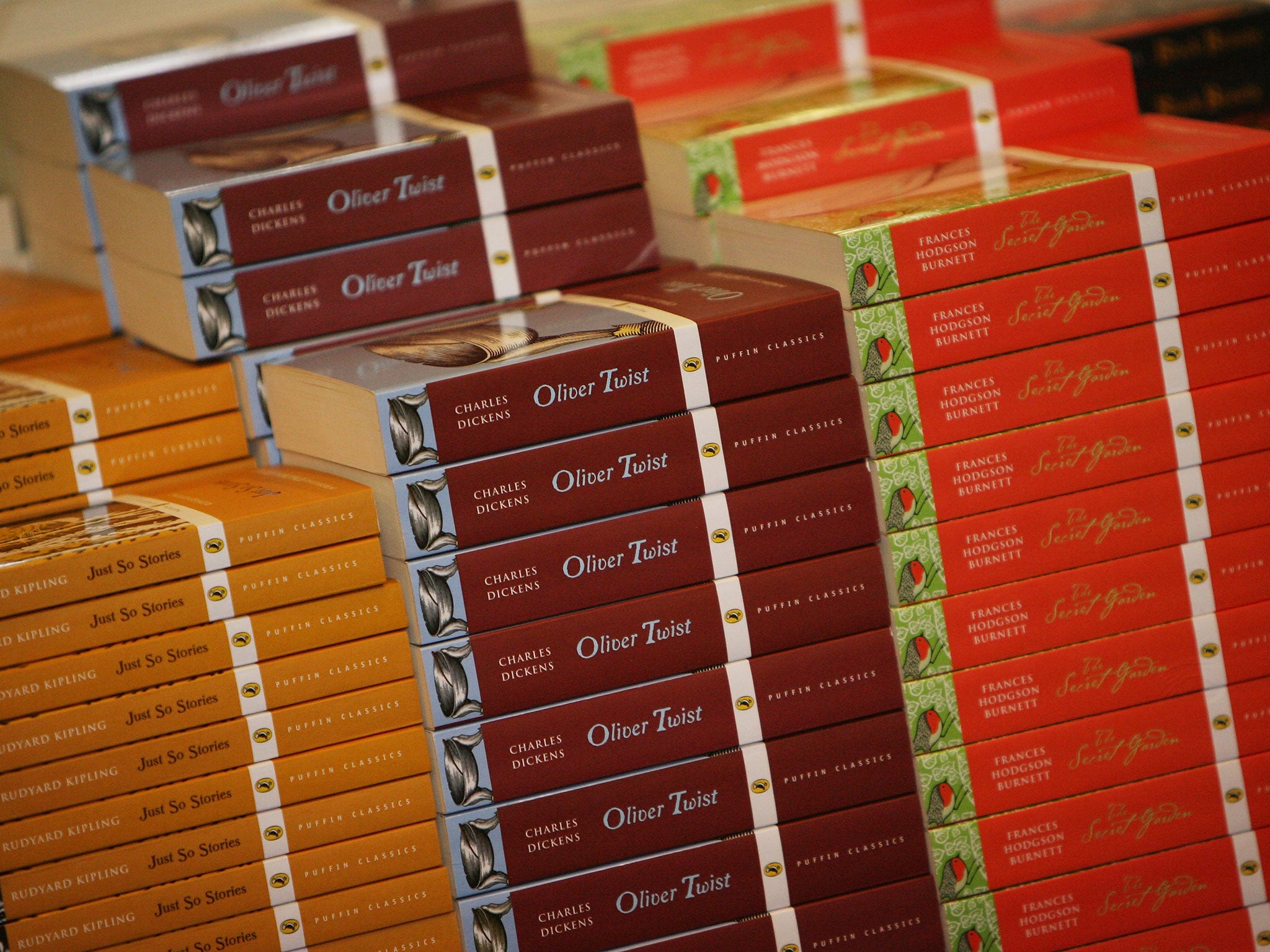Publishing industry reels after nine million fewer books are given as gifts in 2013

Your support helps us to tell the story
From reproductive rights to climate change to Big Tech, The Independent is on the ground when the story is developing. Whether it's investigating the financials of Elon Musk's pro-Trump PAC or producing our latest documentary, 'The A Word', which shines a light on the American women fighting for reproductive rights, we know how important it is to parse out the facts from the messaging.
At such a critical moment in US history, we need reporters on the ground. Your donation allows us to keep sending journalists to speak to both sides of the story.
The Independent is trusted by Americans across the entire political spectrum. And unlike many other quality news outlets, we choose not to lock Americans out of our reporting and analysis with paywalls. We believe quality journalism should be available to everyone, paid for by those who can afford it.
Your support makes all the difference.The number of books being given as gifts has fallen by nine million in a year, delivering a new financial blow to the publishing industry as UK consumers turn away from hard copies in favour of digital reads.
The trend was revealed in Nielsen Book’s UK Books & Consumers Annual Review for 2013, which identified a four per cent year-on-year decrease in the UK book market between 2012 and 2013 both in terms of volume and value.
Jo Henry, director of the research, said that the decline in giving books as gifts would be of particular concern to publishers.
“In view of the importance of the gift market to the book industry,” she said, more work was needed to examine the causes of “the apparent decrease in the value that consumers are placing on books as gifts”. Similar patterns have been identified in the United States. Gifts accounted for 22 per cent of book sales in 2013, down from 24 per cent in 2012.
The survey found that digital e-books now account for 25 per cent of all book purchases (up from 20 per cent in 2012) and that their growth is at the expense of paperbacks (down to 50 per cent from 55 per cent) but not of hardbacks (steady at 21 per cent).
Nielsen Book reported that there has been a sharp rise in digital purchases of adult fiction genres – especially in genres such as romance, crime and fantasy. E-books make up 40 per cent of adult fiction sales, compared to only one in 10 of children’s books.
But the e-books, which are often sold at a small fraction of the cover price of the physical product, were worth only 14 per cent of the total market, with paperbacks still worth 51 per cent (compared to 54 per cent in 2012). Hardbacks actually grew their market share from 30 per cent to 31 per cent over the 12 months.
Thrillers, crime stories and fantasy were the genres that enjoyed growth in 2013, largely at the expense of erotic fiction, which had an exceptional 2012 due to the success of Fifty Shades of Grey by EL James. Erotic fiction – which dropped from 16 per cent of the market in 2012 to five per cent in 2013 - has tumbled from second most popular genre in paperbacks and e-books in 2012 to seventh place in both categories in 2013.
Among children’s books, fantasy and magic stories ranging from JRR Tolkien’s The Hobbit and Stephenie Meyer’s vampire series Twilight to the Rainbow Magic stories of “Daisy Meadows”, a collective of children’s authors sharing the same name, and the Beast Quest fantasy series written by the “Adam Blade” authors have dominated the market for the past two years.
Adventure stories, ranging from new tales such as the Suzanne Collins franchise The Hunger Games to traditional favourites such as Enid Blyton’s The Famous Five series were a declining genre over the year, with market share falling from 15 per cent to 12 per cent.
The study noted that General Fiction – such as the David Walliams series that includes titles Ratburger and Gangsta Granny – had risen to become the most popular genre among 7-12 year-olds.
Accounting group PwC recently predicted that the e-book would overhaul the paperback and hardback as the preferred reading format by 2018
Join our commenting forum
Join thought-provoking conversations, follow other Independent readers and see their replies
Comments